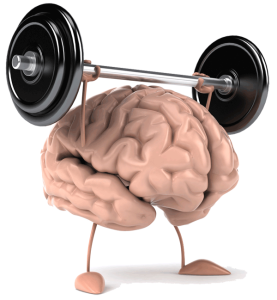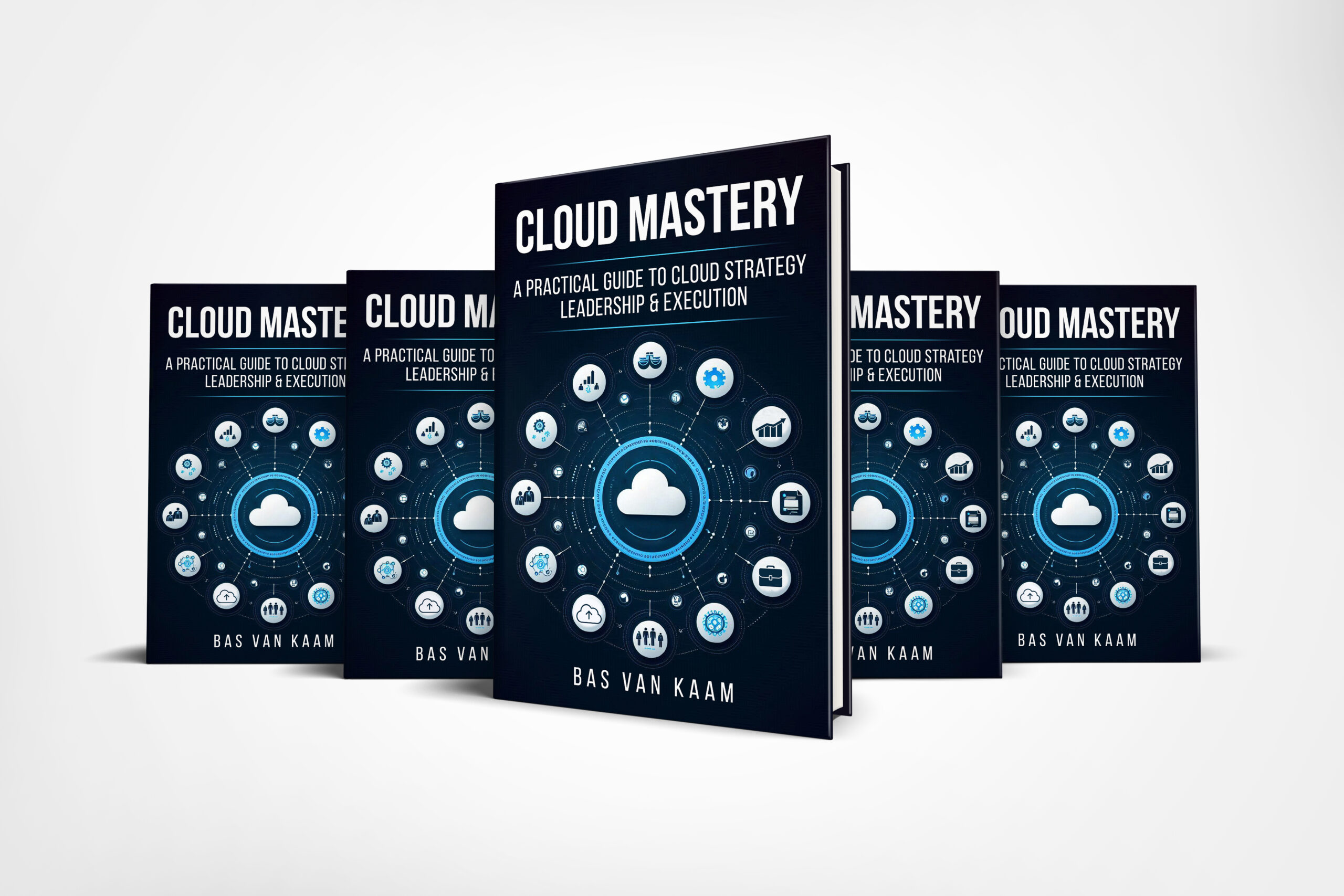 Little over two years ago I singed up to WordPress.com, bought my own personal domain basvankaam.com and just started writing. The main thought behind all this was to create some sort of online (personal) knowledge base and to learn about new and existing technologies and products as I progressed, primarily focusing on the Citrix portfolio. Over time I’ve learned that sharing what I know, or have learned, with others is probably one of the main reasons I kept, and keep, doing what I do. It’s fun, educational (in many ways) and very rewarding at the same time. Although at first I never expected it to turn out the way it has done today, something for which I can only be thankful. But don’t worry, that’s not what I wanted to talk about throughout this article.
Little over two years ago I singed up to WordPress.com, bought my own personal domain basvankaam.com and just started writing. The main thought behind all this was to create some sort of online (personal) knowledge base and to learn about new and existing technologies and products as I progressed, primarily focusing on the Citrix portfolio. Over time I’ve learned that sharing what I know, or have learned, with others is probably one of the main reasons I kept, and keep, doing what I do. It’s fun, educational (in many ways) and very rewarding at the same time. Although at first I never expected it to turn out the way it has done today, something for which I can only be thankful. But don’t worry, that’s not what I wanted to talk about throughout this article.
Impact
Writing, at least for me, is not all about technology. The process on it’s own, making notes, doing research, contacting others etc. teaches you a thing or two about yourself as well (I won’t elaborate:-). In my case it also got me thinking about the way I, or we, absorb knowledge in general and some of the natural processes and thoughts behind it.
During these past 24 months or so, I’ve picked up and developed a few personal habits that work best for me when it comes to researching and learning about new and (or) existing products / technologies. One of which, and this is probably the single most important one, is that physically writing stuff down works best in most, if not all, circumstances when it comes to absorbing new information and making it stick.
That’s right, I’m referring to an actual pen and paper here.
While I’m almost making this sound sort of old school, unfortunately, this may already be closer to the truth then we think. I say unfortunately because this also affects our kids, and theirs, and the way they will be taught how to read, and even more importantly, write. All this might have a greater impact than initially expected.
Kids continued
 Learning how to operate digital equipment, including how to read and write using laptops, iPads, MacBook’s and desktop computers, is becoming a standard practice on almost all-modern schools out there today, at least that’s what I see happing here in Holland. And I’m not saying this is a bad thing per se, but it does scare me a little. Learning to read and write the ‘old fashion’ way is an important part of a child’s overall development. Studies have shown that in grades two, four and six, children wrote more words, faster, and expressed more ideas when writing essays by hand versus with a keyboard, and that’s just one example. I’m not really sure what the distinction between the two should be, between reading and writing digitally and using a pen and paper I mean, but I think it should be somewhere around 60 / 40 or maybe even 70 / 30, in favor of the physical pen and paper that is. Of course I also acknowledge the importance of learning to use and operate digital equipment, since it is without a doubt, what our future will be built on.
Learning how to operate digital equipment, including how to read and write using laptops, iPads, MacBook’s and desktop computers, is becoming a standard practice on almost all-modern schools out there today, at least that’s what I see happing here in Holland. And I’m not saying this is a bad thing per se, but it does scare me a little. Learning to read and write the ‘old fashion’ way is an important part of a child’s overall development. Studies have shown that in grades two, four and six, children wrote more words, faster, and expressed more ideas when writing essays by hand versus with a keyboard, and that’s just one example. I’m not really sure what the distinction between the two should be, between reading and writing digitally and using a pen and paper I mean, but I think it should be somewhere around 60 / 40 or maybe even 70 / 30, in favor of the physical pen and paper that is. Of course I also acknowledge the importance of learning to use and operate digital equipment, since it is without a doubt, what our future will be built on.
Still, I’m a firm believer that the written word (on paper that is) is way more powerful and effective than any digital device out there today, and this goes for adults as well as kids. Of course you could state that using digital equipment (no matter in what form) has several advantages over using a pen and paper, sure, it’s faster, text is far easier to edit and format and since technology is widely spread exchanging information is also done in a matter of seconds. And I’m sure you guys can come up with a whole lot more.
More productive, less efficient
As a result of all this and from an adult perspective, having used your MacBook, laptop etc… you probably feel way more productive at the end of the day. But… although this all may sound great on ‘paper’ several studies have shown that learning (and not just learning) to read and write using a pen and paper has several very important benefits, which are crucial to a child’s overall development and can, and probably also will, play an important role in an adults live as well. And don’t even get me started on the bad influences that blue light has on our eyes and brain as well, it’s bad enough that I’m behind a screen all day :-)
Traditional reading and writing improves the student’s (this means you to) motor and visual skills, eye-to-hand co-ordination, spatial awareness, hand and finger dexterity, cognitive function and brain development. And as indicated earlier, the physical act of handwriting also facilitates the retention of information and the flow of ideas.
In short, it makes you more efficient and boosts overall creativity.
 Another example would be when I look at both of my daughters (8 and 12), they love to write as much as they love to read, of course we encourage both of them to do so, although not much effort is needed (I believe that this is and should be the responsibility of every parent), my point is, kids love it if you ‘just’ let them. If I look at myself, and I think most of you can only agree, when physically making notes as apposed to using my MacBook for example, it is far easier to recall what I’ve been working on a few hours, or even weeks, later. Your brain simply needs to work harder and is more ‘involved’ which equals efficient as well as effective.
Another example would be when I look at both of my daughters (8 and 12), they love to write as much as they love to read, of course we encourage both of them to do so, although not much effort is needed (I believe that this is and should be the responsibility of every parent), my point is, kids love it if you ‘just’ let them. If I look at myself, and I think most of you can only agree, when physically making notes as apposed to using my MacBook for example, it is far easier to recall what I’ve been working on a few hours, or even weeks, later. Your brain simply needs to work harder and is more ‘involved’ which equals efficient as well as effective.
I’m aware that this may not apply to every individual out there, but I’m focusing on the big picture here.
My approach
When I’m looking into writing something new, never mind the subject, one of the first things I do is getting out my paper notepad (and pen) and start writing. Things I already know, things I still need (or want) to find out, perhaps some more detailed research is needed to make sure I’m not disconfirming my readers (unfortunately this process isn’t a 100% bullet proof :-) and of course when I do find new information I will also write some of it down, not all though.
It’s worth it
 This may sound like a lot of work, and I have to admit, depending on the subject at hand, it sometimes is. Then again, my goal is to absorb as much information as I possibly can and I enjoy learning new things. During the past two years I’ve learned that this is by far the best way to do it, at least for me. But I don’t believe I’m unique, far from it to be honest. Of course this doesn’t automatically mean that once an article is finished and published I can recall all information instantly whenever I want, no way, unfortunately I don’t have a photographic memory. But it does help me in recalling the basics and beyond, depending on how long it has been, when discussing a particular subject, it being face to face or virtually via Twitter for example.
This may sound like a lot of work, and I have to admit, depending on the subject at hand, it sometimes is. Then again, my goal is to absorb as much information as I possibly can and I enjoy learning new things. During the past two years I’ve learned that this is by far the best way to do it, at least for me. But I don’t believe I’m unique, far from it to be honest. Of course this doesn’t automatically mean that once an article is finished and published I can recall all information instantly whenever I want, no way, unfortunately I don’t have a photographic memory. But it does help me in recalling the basics and beyond, depending on how long it has been, when discussing a particular subject, it being face to face or virtually via Twitter for example.
And as I mentioned earlier, my website also functions as an online knowledge repository, not just for me but for a few others as well, something that has evolved that way over these relatively short two years. And since I’m still far from being where I want to be, you can expect a lot more still to come, which I guess, will be good news for some and perhaps not so good for others :-) Here’s another quote for you:
Writing stimulates a bunch of cells at the base of the brain called the reticular activating system (RAS). The RAS acts as a filter for everything your brain needs to process, giving more importance to the stuff that you’re actively focusing on at the moment—something that the physical act of writing brings to the forefront.
Some sort of hybrid solution perhaps?
As I mentioned, I start out with taking notes using just a pen and a simple piece of paper or notepad. However, eventually my notes will end up on my website in the form of an (digital) article. So once I finish taking notes I basically rewrite everything on my laptop, digitalising the whole bunch, adding in some extra details before finalising it with some graphics giving it a smoother look. While I’m still in favour of using a pen and paper, obviously, if all else fails I guess we would be best of using some sort of hybrid solution.
A digital pen, which we can use to write and take notes while at the same time all data gets digitalised and will eventually end up onto our computers. A solution like the Livescribe pen for example. Check out some of their other solutions as well. Of course there are a lot of other manufactures and solutions out there as well, you might want to give it a Google (or check this overview) to get an idea on the some of the possibilities today, although most sites will probably lead you to the Livescribe pen anyway. You guys know some good alternatives, some hands-on experience perhaps? Using something like this still gives us the added advantage of handwriting and at the same time all written words will be digitalised, potentially saving some time, depending on your use case of course. Unfortunately these solutions don’t get the attention they deserve, especially as an alternative to using digital (keyboard) devices exclusively.
Some additional reading and resources used.
For your reading pleasure check out some of the below articles. Most are recent, one or two might be a bit outdated but still worth skimming. You’ll also find the links to some of the studies and research I referred to earlier. Needles to say that I also used these articles as a reference for my article.
- http://www.nytimes.com/2014/06/03/science/whats-lost-as-handwriting-fades.html?_r=0
- http://www.theguardian.com/science/2014/dec/16/cognitive-benefits-handwriting-decline-typing
- http://www.medicaldaily.com/why-using-pen-and-paper-not-laptops-boosts-memory
- http://lifehacker.com/5738093/why-you-learn-more-effectively-by-writing-than-typing
- http://www.pbs.org/wgbh/nova/next/body/taking-notes-by-hand-could-improve-memory-wt/
- http://readwrite.com/2013/01/11/why-writing-with-our-hands-is-still-important
- http://www.dailymail.co.uk/sciencetech/article-2936600/The-death-handwriting-Schools-ditching-pens-papers-computers-harm-child-s-development.html
Wrap up
I’m sure we could come up with a lot more articles, perhaps even a few on why we should prefer to use digital equipment instead of a pen and paper, or ‘traditional handwriting as it is often referred to. Your thoughts on this? I thought it might be fun to write about something not directly (although remotely of course) technology related. It was. As always, thanks for reading.









2 responses to “My version of why the pen is mightier than the keyboard!”
see also the book ‘Digitale dementie’ (dutch for digital dementia) from Manfred Spitzer
Thanks Ricardo!